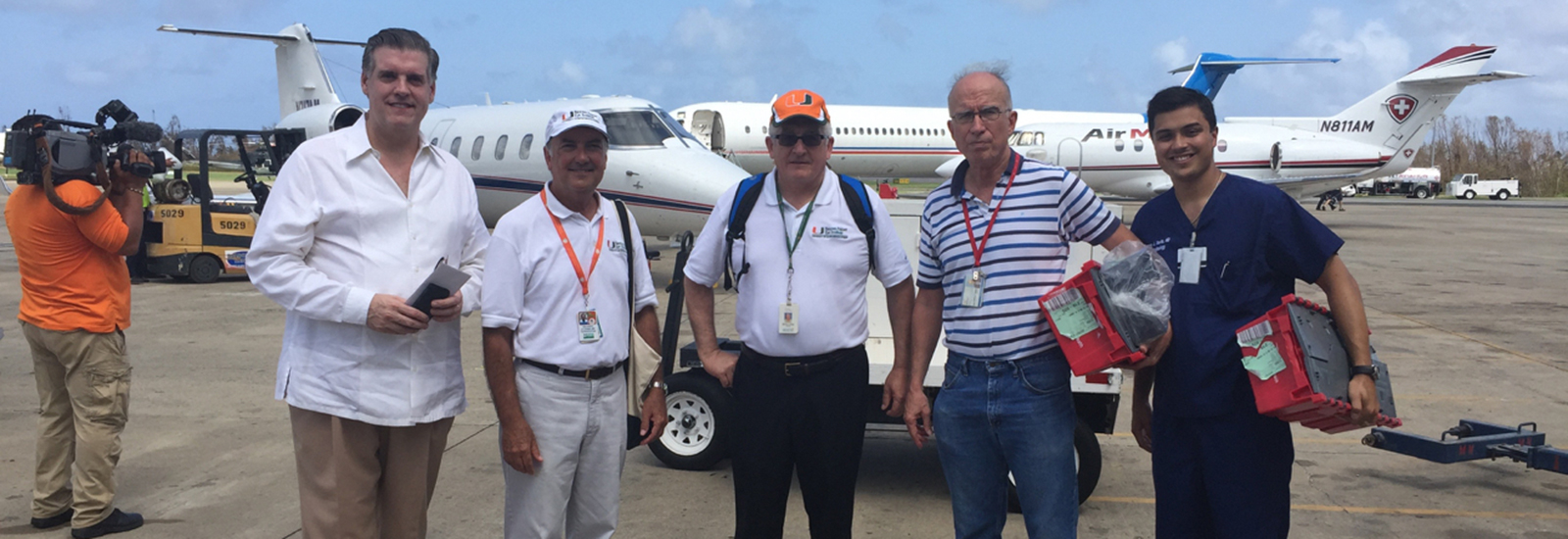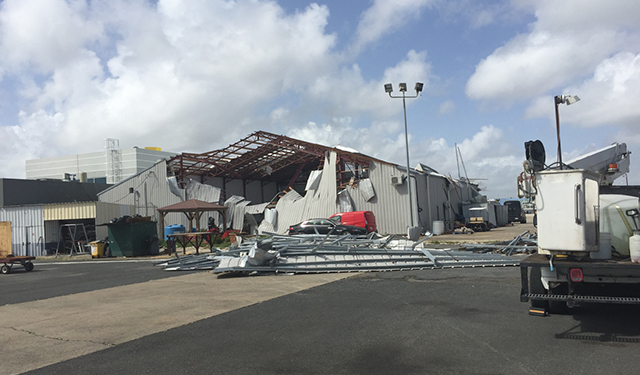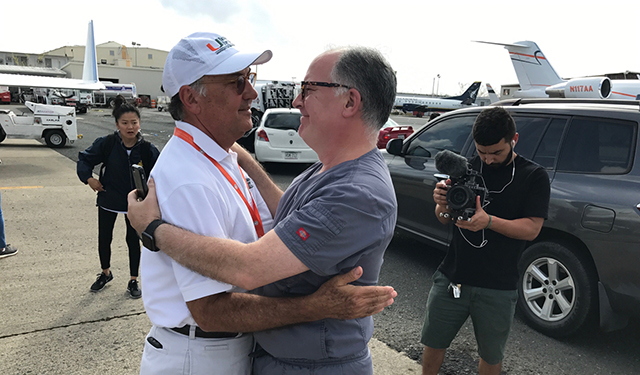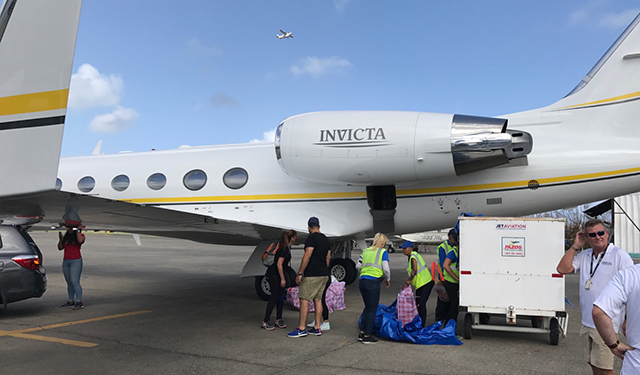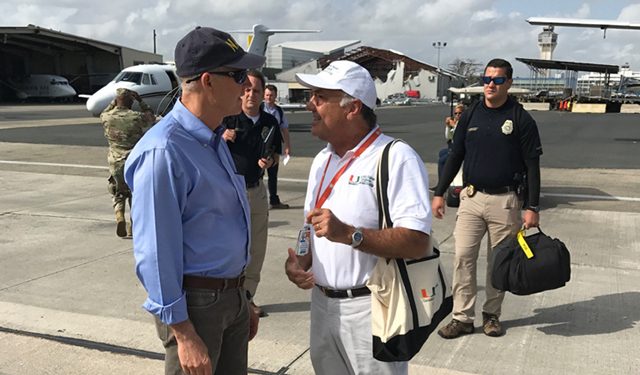Creating New Communication Channels
To help ophthalmology patients connect with vision care specialists on the island, Bascom Palmer launched “EYE CAREPR,” an online communications network using Facebook and the WhatsApp mobile messaging application.
“We contacted leaders in Puerto Rico’s ophthalmology community, who added professionals on the island,” said Alfonso. “Now, physicians, clinics and hospitals can tell the public if they are open or closed for emergency services. We also connected with WAPA television in San Juan, which stayed on the air during the hurricane, to broadcast public service announcements.”
In addition, Bascom Palmer is coordinating Eye Care: Puerto Rico (#EyeCarePuertoRico), for Puerto Ricans who evacuate the island and need emergency eye care to contact an eye doctor in the U.S. city in which they land. The American Academy of Ophthalmology and eye centers and ophthalmologists in cities with large populations of Puerto Ricans are collaborating. After treatment, the patients will be reconnected with their physicians in Puerto Rico to promote continuity of care, Alfonso said.
Physicians at Sylvester Comprehensive Cancer Center at the University of Miami Miller School of Medicine have been in direct contact with their colleagues in Puerto Rico.
“We are closely monitoring the situation for cancer patients who require ongoing care,” said Stephen D. Nimer, M.D., director of Sylvester, and professor of medicine, biochemistry and molecular biology at the Miller School, in an online message to Puerto Rico’s oncology community. “Our faculty, administration and students have been communicating with organizations and government representatives to advocate on behalf of all patients. Please let us know how we can support you.”
Gilberto de Lima Lopes Jr., M.D., associate professor of clinical medicine, Medical Director for International Programs and Associate Director for Global Oncology, said the Sylvester team has worked closely with the American Society of Clinical Oncology (ASCO) and its Florida chapter, which is communicating with the Puerto Rico Oncology Society.
“Through these efforts, the Community Oncology Alliance has created a fund to support patients on the island and was able to send satellite phones to aid communication,” Lopes said. “ASCO has set a fund that can provide a $500 stipend for travel or other support, and also helping to arrange transportation off the island. We have also been able to relay messages to government leaders about the critical need of diesel for generators to power oncology clinics and hospitals so patients can restart treatment.”
Providing Patient Care
Currently, patients are being sent to Florida facilities on a case-by-case basis, and children with complex medical conditions receive the highest priority, Green said.
Two young cancer patients evacuated from Puerto Rico are now receiving care from Sylvester physicians at Holtz Children’s Hospital, according to Julio C. Barredo, M.D., professor of pediatrics, medicine, and biochemistry and molecular biology, and the Toppel Family Chair in Pediatric Hematology-Oncology. “One patient has a brain tumor and the other has leukemia, and needed to start therapy immediately,” he said.
Schaechter said two premature babies from Puerto Rico are now being evaluated after their neonatal unit on the island was badly damaged. “They need specialized team care for the complications of prematurity,” she said. “We are assessing them now with equipment that requires full power and evaluating if they will need surgery or other expertise which is not available in the aftermath of a disaster. “
Others Affected
Though less populated, Tortola and the British Virgin Islands were not spared from the storm’s wrath, which finished off the damage started by Hurricane Irma. Upon learning that difficult decisions were being made regarding treatment for patients, Alessia Fornoni, M.D., Ph.D., chief of the Katz Family Division of Nephrology and Hypertension, and pharmacist Christine Vargas, worked tirelessly to coordinate care. They managed to load lifesaving medications onto a private jet that landed on the island soon after.
Looking Ahead
Longer term, Miller School leaders are discussing how to help Puerto Rico begin to rebuild its health care infrastructure — including patient care facilities, medical education and research programs — while addressing future public health challenges.
“Puerto Rico’s recovery will be a long-term process,” Green said. “We will draw on our professional ties with the island’s medical community and our shared cultural background to find creative ways our University can provide ongoing support.”



